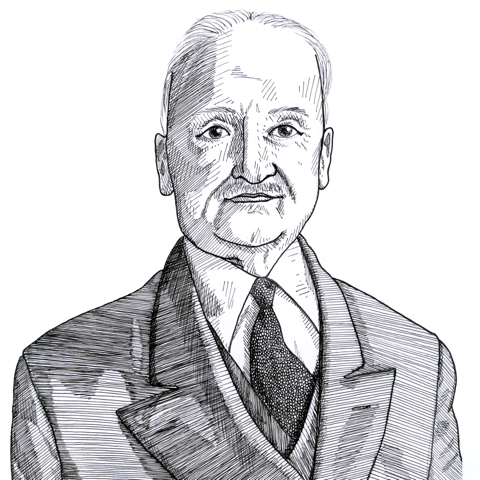
Mises and the Emergence of Etatism in Germany (1944)
Found in: Omnipotent Government: The Rise of the Total State and Total War
Writing in the last stages of the Second World War, the Austrian economist Ludwig von Mises (1881-1973), now resident in the United States, reflected on how the total state in Germany came into being. He traced its origins to the 1840s when statist and interventionist ideas emerged in Britain, France, and the U.S. and were eagerly taken up by intellectuals in the German states:
Socialism & Interventionism
The most important event in the history of the last hundred years is the displacement of liberalism by etatism. Etatism appears in two forms: socialism and interventionism. Both have in common the goal of subordinating the individual unconditionally to the state, the social apparatus of compulsion and coercion…
Etatism assigns to the state the task of guiding the citizens and of holding them in tutelage. It aims at restricting the individual’s freedom to act. It seeks to mold his destiny and to vest all initiative in the government alone. It came into Germany from the West. Saint Simon, Owen, Fourier, Pecqueur, Sismondi, Auguste Comte laid its foundations. Lorenz von Stein was the first author to bring the Germans comprehensive information concerning these new doctrines. The appearance in 1842 of the first edition of his book, Socialism and Communism in Present-Day France, was the most important event in pre-Marxian German socialism. The elements of government interference with business, labor legislation, and trade-unionism also reached Germany from the West. In America Frederick List became familiar with the protectionist theories of Alexander Hamilton.